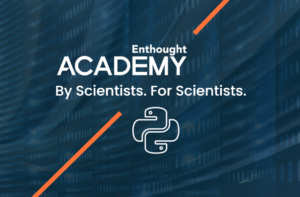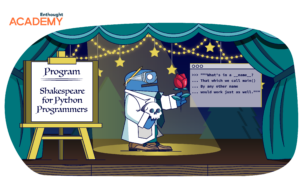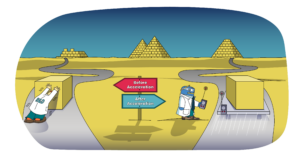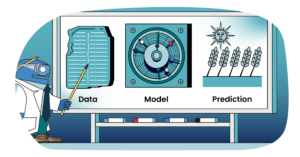Training
It doesn’t take ✨magic✨ to integrate ChatGPT into your Jupyter workflow. Integrating ChatGPT into your Jupyter workflow doesn’t have to be magic. New tools are seemingly coming out daily to help write code using large language models (LLMs). They appear to have a considerable positive impact on developers’ lives. GitHub claims 88% percent of developers…
Read MoreThere’s a long history of scientists who built new tools to enable their discoveries. Tycho Brahe built a quadrant that allowed him to observe the path and distance of a comet as it crossed the solar system, helping to prove the heliocentric model of the way the stars and planets move. Galileo Galilei built his…
Read MoreScientists gain superpowers when they learn to program. Programming makes answering whole classes of questions easy and new classes of questions become possible to answer. If you have some programming experience, large language models (LLMs) can raise the ceiling of your performance and productivity. Using LLMs to write code turns a challenging recall task (What’s…
Read MoreYou know it. We know it. NumPy is cool. Pandas is cool. We can bend them to our will, but sometimes they’re not the right tools for the job. Enter Xarray and Awkward Array. Read on for the four reasons why you need to learn these Python packages. Reason 1: You need labeled arrays of…
Read MoreLike most people, I mostly interact with Python using the default REPL or with IPython. Yet, I often reach for one of the Python tools that come with the standard library. All these tools are implemented as “mains” in the various scripts and modules. Here are 7 I use on a semi-regular basis. 1. &…
Read MoreRecently, I’ve been working on a new course offering in Enthought Academy titled Software Engineering for Scientists and Engineers course. I’ve focused on distilling the software engineering best practices that we use at Enthought with our clients, with the twist of “what parts are most useful for a scientist who writes software for R&D?” After…
Read Moreif __name__ == “__main__”: When I was new to Python, I ran into a mysterious block of code that looked something like: def main(): # do some stuff if __name__ == “__main__”: main() Looking at the code, I could see that it ran the main() function after checking the status of…
Read MoreWhy Python? Of all of the questions that I have been asked as the instructor of an Enthought Python course, this has been one of the most difficult to answer in a satisfying way. The answers I have given have always seemed more opinion than fact. Still, if someone asks me what language I recommend…
Read MoreWhen thinking about enhancing R&D processes, Newton’s second law of motion provides the perfect framework. Classical mechanics teaches us that putting a body into motion requires applying force. The resulting acceleration will be the sum of the forces applied to the body, divided by the body’s mass: a = F/m. So, if we want to…
Read MoreWhat can we learn about machine learning from ancient astronomy? When thinking about Machine Learning it is easy to be model-centric and get caught up in the details of getting a new model up and running: preparing a dataset for machine learning, partitioning the training and test data, engineering features, selecting features, finding an appropriate…
Read More







